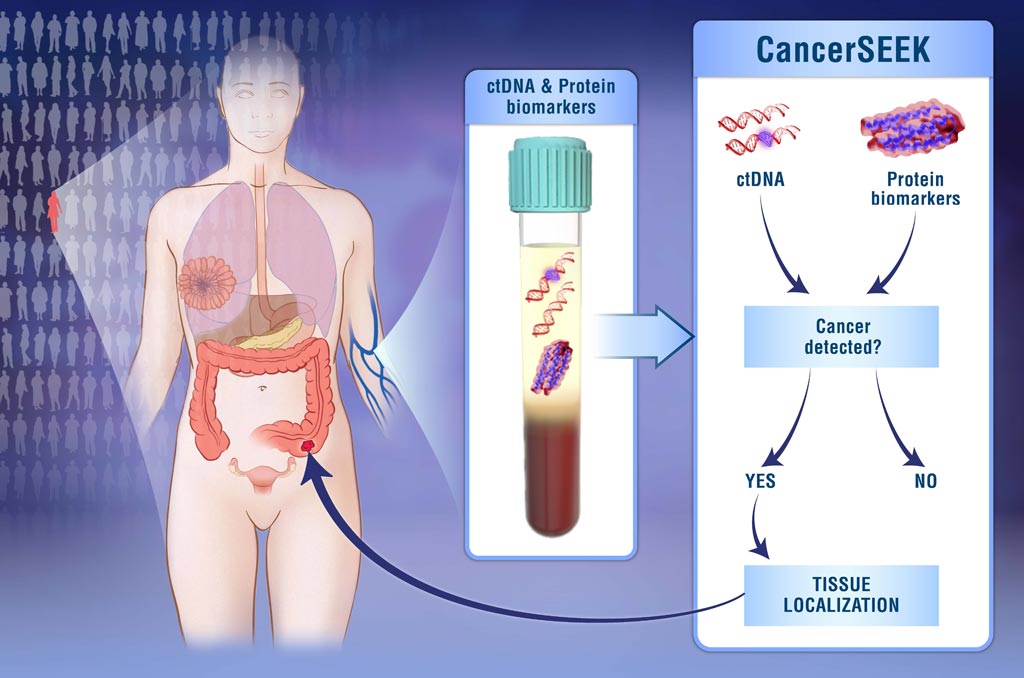Liquid Biopsy Test Detects Eight Types of Cancer
By LabMedica International staff writers
Posted on 29 Jan 2018
Cancer researchers have developed a "liquid biopsy" blood test that can detect eight common cancer types through assessment of the levels of circulating proteins and mutations in cell-free DNA.Posted on 29 Jan 2018
The "CancerSeek" test screens for mutations in 16 genes that regularly arise in cancer cells and eight proteins that are often released. The assay was designed to detect the eight common cancer types that account for more than 60% of cancer deaths in the United States. Five of the cancers detected by CancerSeek currently have no screening test.

Image: CancerSEEK multi-analyte test simultaneously evaluates levels of eight cancer proteins and the presence of cancer gene mutations from circulating DNA in the blood (Photo courtesy of Elizabeth Cook and Kaitlin Lindsay, Johns Hopkins University).
Investigators at Johns Hopkins University (Baltimore, MD, USA) tested the CancerSeek liquid biopsy assay on 1,005 patients who had already been diagnosed with one of eight cancers: ovarian, liver, stomach, pancreatic, esophageal, colorectal, lung, or breast. Individuals whose cancer had metastasized were excluded, so the focus would be on early stages of the disease.
Results revealed that the effectiveness of CancerSEEK varied widely depending on the cancer: it detected 98% of ovarian cancers, but only 33% of breast cancer cases. It was able to pinpoint the organ in which the disease had taken root in about 63% of patients. Furthermore, the test performed better on later-stage cancers than on earlier ones, finding 78% of stage III disease versus 43% of stage I tumors.
Test sensitivities ranged from 69% to 98% for the detection of five cancer types (ovary, liver, stomach, pancreas, and esophagus) for which there are no screening tests available for average-risk individuals. The specificity of CancerSEEK was greater than 99%: only seven of 812 healthy controls scored positive.
"Many of the most promising cancer treatments we have today only benefit a small minority of cancer patients, and we consider them major breakthroughs. If we are going to make progress in early cancer detection, we have to begin looking at it in a more realistic way, recognizing that no test will detect all cancers," said contributing author Dr. Bert Vogelstein, professor of oncology at Johns Hopkins University. "This test represents the next step in changing the focus of cancer research from late-stage disease to early disease, which I believe will be critical to reducing cancer deaths in the long term."
The CancerSeek test was described in the January 18, 2018, online edition of the journal Science.
Related Links:
Johns Hopkins University














